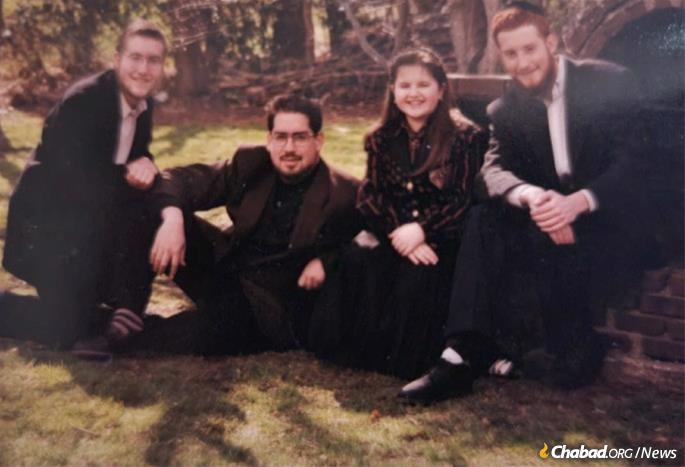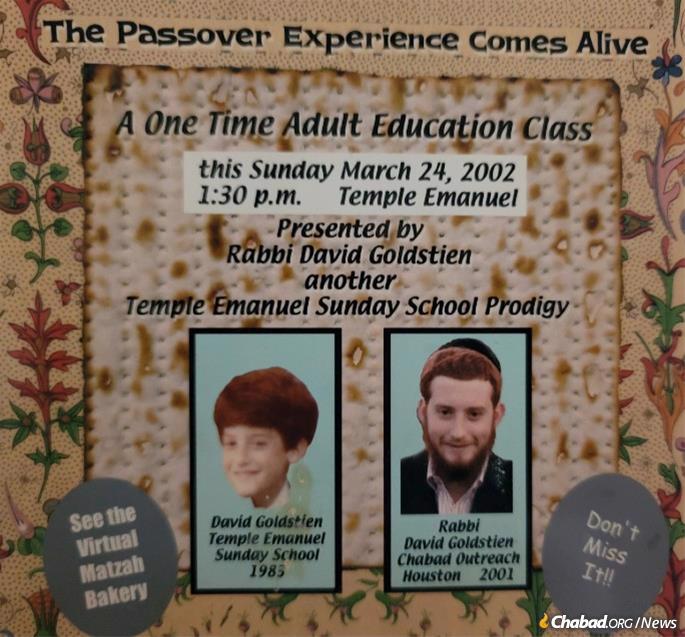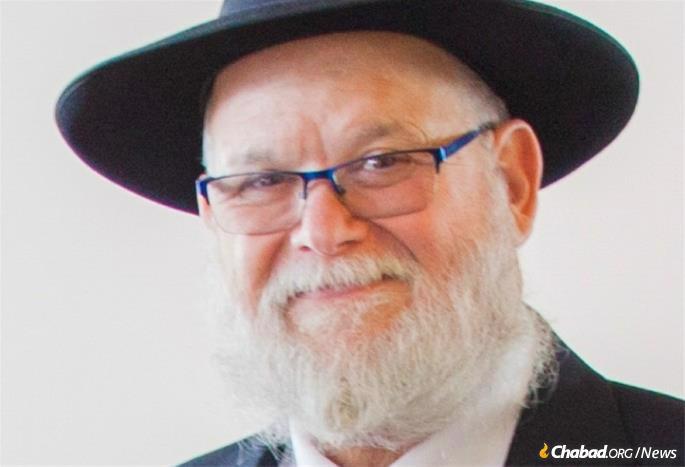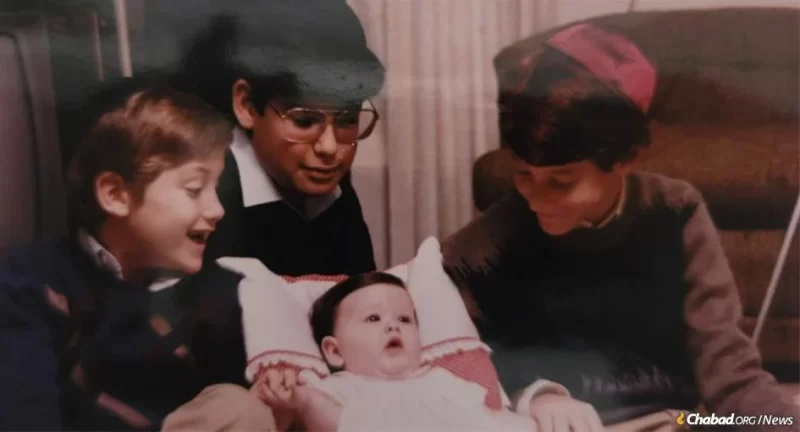
Houston’s Newest Torah: A Tale of Two Letters in a Children’s Scroll
by Mendel Super – chabad.org
Dovid Goldstein was 7 years old in 1981 when a bearded man entered his father’s store in McAllen, Texas, and changed his life forever. A “prodigy” of McAllen’s Temple Emanuel Sunday School, the boy was a world away from Chassidic Brooklyn, N.Y., where the Rebbe—Rabbi Menachem M. Schneerson—led the Chabad-Lubavitch movement.
The visitor who walked into Isser Leib Goldstein’s store that day was Rabbi Sholom Ber Schapiro, then a teacher at a Brooklyn yeshivah. A parent of one of Schapiro’s students had approached him with a business proposal that would see him make a sales trip to different parts of the county every six weeks to supplement his teacher’s salary.
Before accepting the offer, Schapiro asked the Rebbe for his blessing. The Rebbe gave his approval, adding a condition: “I should sign up children for a letter in the Sefer Torah—at least two in every city,” Schapiro recalled in an interview with JEM’s “My Encounter with the Rebbe” series.
In the spring of 1981, the Rebbe had announced a campaign to make sure every Jewish child has a letter of their own in a Torah scroll being written in Jerusalem that Hakhel year. This first children’s Sefer Torah would tangibly unite the Jewish people, offer Divine protection and allow them to fulfill the mitzvah of writing one’s own Torah scroll.
But where would this Chassidic Jew find two Jewish children in McAllen, deep in southern Texas? It was Thursday, and Schapiro wanted to return to his family for Shabbat: “The next day was Friday, and I could not leave the city until I signed up at least two children for a letter in the Torah scroll. … But I didn’t know any Jews; I didn’t know anybody.”
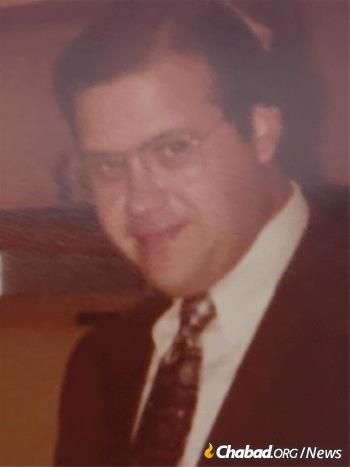
Finally, Schapiro walked into a Jewish-owned electronics store. The owner, who wasn’t interested, told him about another Jewish store owner on Main Street.
“My father thought he wanted a donation,” recalls Rabbi Dovid Goldstein—now co-director with his wife, Elisa, of Chabad-Lubavitch of West Houston. Schapiro explained why he was there, asking the senior Goldstein if he’d heard of Lubavitch before. Of course, he had, he replied. His own great-grandfather had been affiliated with Lubavitch in his hometown of Azarichi in Russia, and the family had retained some of the Lubavitch traditions, including praying according to “Nusach Arizal,” the prayer liturgy based on the Kabbalistic teachings of Rabbi Yitzchak Luria. Schapiro asked him if he had any children and was delighted to hear he had two sons, whom he then signed up for a letter in the Torah scroll.
Mission Completed … or So He Thought
Schapiro’s mission was complete, but he stayed on in the store for hours, talking to Goldstein, who hung on to every word. Customers came and went, but this Jew in McAllen was riveted to what the rabbi was saying. Schapiro went home to Brooklyn but kept in touch with Goldstein, visiting him six weeks later.
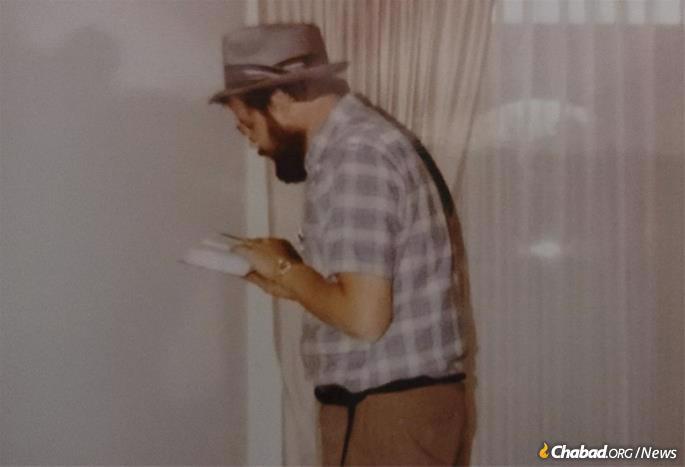
Soon, Goldstein flew to Brooklyn for the last days of Passover, stayed at the Schapiro home and attended a farbrengen, a Chassidic gathering with the Rebbe at 770 Eastern Parkway, the Rebbe’s synagogue. He waited in line for the Rebbe to give him kos shel brachah—wine the Rebbe would hand out after the holiday—and the Rebbe waved his arm to him three times, a gesture of encouragement.
Slowly, the Goldstein family became closer and closer to the traditions of their ancestors, moving to San Antonio to be near a larger Jewish community. “He picked up Rabbi Block from the airport,” Dovid Goldstein says of when the Rebbe’s first emissaries to San Antonio, Rabbi Chaim and Rivkie Block, arrived in 1985 to establish Chabad-Lubavitch of Southern Texas. Before the Blocks’ arrival, Goldstein would travel to Austin, where he developed a close relationship with Rabbi Moishe Traxler, today director of Chabad Outreach of Houston. In 1986, with the Rebbe’s blessing, he moved to Crown Heights, where he lived for the next almost 30 years.
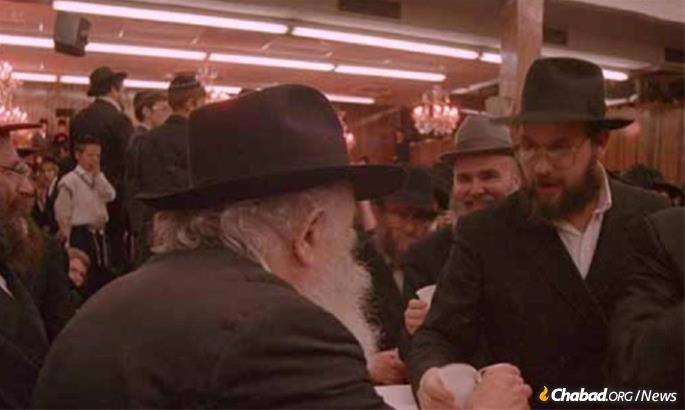
Dovid Goldstein eventually went to yeshivah and returned to Texas in 1998 with his wife, Elisa, and began working with his father’s mentor, Rabbi Traxler, eventually establishing his own center, Chabad of West Houston.
When Isser Leib Goldstein passed away a year ago, on 20 Iyar, 5782, May 21, 2022, in the Houston , his children—Feivel Goldstein, Rabbi Dovid Goldstein, Rabbi Reuven Goldstein and Chavie Rubinstein—knew which mitzvah would be most fitting to do in his memory:
They would commission a new Torah scroll for Chabad of West Houston, to be completed on Lag BaOmer this Hakhel year, in time for his first yahrzeit, six Hakhel cycles after Isser Leib Goldstein purchased those two letters for his children, bringing his life full circle.
Readers can purchase letters for the children in their family in the eighth children’s Torah here.
